Joint project aims to support sustainable development in Kenya
BGS is part of a joint UK-Kenyan international project that aims to blend data and information with local stakeholder input to explore the sustainable supply of sand and aggregates in Kenya.
12/10/2020 By BGS Press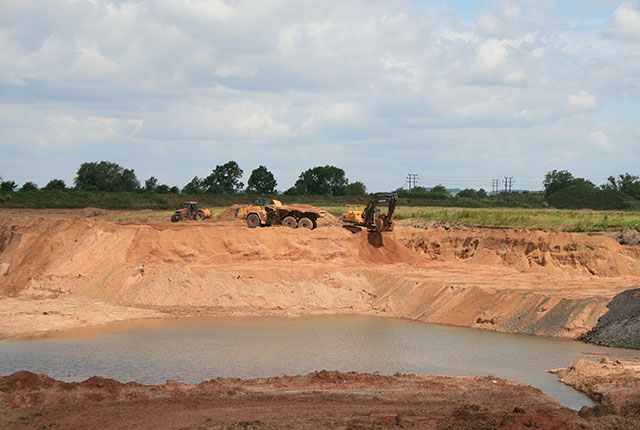
The project, called Earth Observation for Sustainable Aggregate Supply (EO4SAS), is one of ten recently announced projects being grant-funded through the UK Space Agency’s International Partnership Programme (IPP), part of the Department for Business, Energy & Industrial Strategy’s (BEIS) Global Challenges Research Fund (GCRF).
Sand used as aggregate forms an essential but finite resource. Growing demand for construction – buildings and infrastructure, creating land through reclamation, and coastal protection from climate change – has resulted in supply pressures on traditional sources. Unmanaged extraction is an emerging and locally significant problem around the world.
The issue has been highlighted by the United Nations and has the potential to cause wide-ranging social, economic and environmental impacts. These impacts can include pollution, land erosion, changing water flows, reduction of biodiversity, damage to infrastructure, degradation of habits and impacts on vulnerable communities.
Pixalytics Ltd, a UK-based earth-observation company, is leading the project and will be working with the Government of Kenya alongside Kenyan partners Nairobi Design Institute and NIRAS Africa, and UK partners Satellite Applications Catapult, Chatham House and the University of Plymouth to deliver the work. The project is being supported by the minerals team from BGS.
The team will be working with local stakeholders alongside satellite data, machine-learning technology and in-country knowledge to bring together a better understanding of the current extraction sites, scale, transportation routes and environmental impacts for sand, helping the Government of Kenya identify better strategies for the sustainable management of this resource.
This is a short-term discovery project, running until March 2021, to look at how such a system could be implemented. It is hoped the proposed solution will go on to receive further funding and so improve the monitoring and regulation of aggregate mining, supporting sustainability in the aggregate supply chain and progress towards the United Nations’ Sustainable Development Goals.
Sand is a vital raw material for construction, essential for houses and infrastructure in rapidly developing counties like Kenya. However, high demand can lead to shortages, lack of effective environmental controls and even illegal mining. Through this project we are excited to be involved in developing more effective resource management systems using innovative technologies to mitigate some of the harmful effects of sand extraction.
Tom Bide, BGS Minerals Geologist.
With an increasing global demand for sand, we are excited to be working with Government of Kenya, local stakeholders and communities to see how we can all work together to develop a more sustainable system for the management of this vital resource.
Dr Samantha Lavender, Managing Director at Pixalytics.
The compelling results of previous IPP projects cement the case for investment in space for sustainable development. IPP is not only demonstrating the value of satellite solutions and improving the lives of people on the ground in developing countries, but also facilitating effective alliances between the United Kingdom and international organisations. It’s a ‘win-win’ and an exciting moment in the programme.
Liz Cox, IPP Head of International Relations at the UK Space Agency.
For further information please contact our press office:
Call: +44 (0)7790 607 010.
(Please do not text this number. We accept calls or email only.)
Email: bgspress@bgs.ac.uk
About the UK Space Agency’s International Partnership Programme:
The UK Space Agency’s International Partnership Programme (IPP) is a five-year, £30 million per year initiative designed to utilise the UK space sector’s research and innovation strengths to deliver sustainable economic, societal and/or environmental benefits to developing countries. Projects within IPP span a range of themes including: building climate/disaster resilience; improving agriculture; reducing deforestation; preventing and reducing maritime pollution and illegal fishing; optimising renewable energy production; and improving access to appropriate and affordable financial services.
IPP is funded from the Department for Business, Energy and Industrial Strategy’s (BEIS) Global Challenges Research Fund (GCRF). This £1.5 billion Official Development Assistance (ODA) fund supports cutting-edge research and innovation on global issues affecting developing countries. ODA-funded activity focuses on outcomes that promote long-term sustainable development and growth in countries on the OECD Development Assistance Committee (DAC) list. IPP is ODA compliant, being delivered in alignment with UK Aid Strategy and the United Nations’ (UN) Sustainable Development Goals (SDGs).
About the British Geological Survey
The British Geological Survey (BGS) is a world leading applied geoscience research centre that is part of UK Research and Innovation (UKRI) and affiliated to the Natural Environment Research Council (NERC). BGS core science provides objective and authoritative geoscientific data, information and knowledge to inform UK Government on the opportunities and challenges of the subsurface. It undertakes national and public good research to understand earth and environmental processes in the UK and globally. The BGS annual budget of approximately £60 million pa is funded directly by UKRI, as well as research grants, government commissions and private sector contracts. Its 650 staff work across the UK with two main sites, the head office in Nottingham and Lyell Centre, a joint collaboration with Heriot Watt University in Edinburgh. BGS works with more than 150 private sector organisations, has close links to 40 universities and sponsors about 100 PhD students each year. Please see www.bgs.ac.uk.
Related news
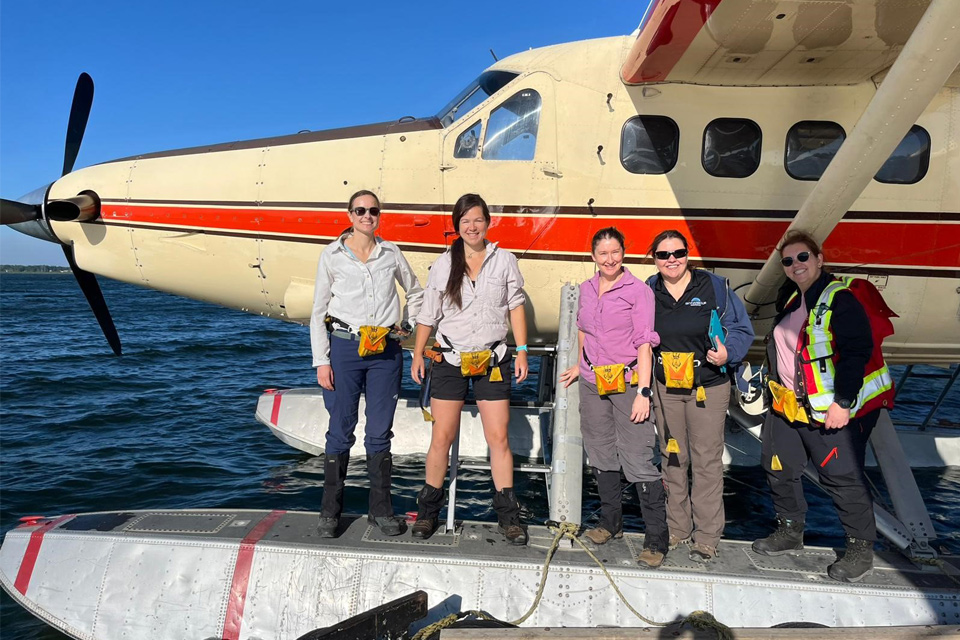
Funding awarded to UK/Canadian critical mineral research projects
08/07/2025
BGS is part of a groundbreaking science partnership aiming to improve critical minerals mining and supply chains.
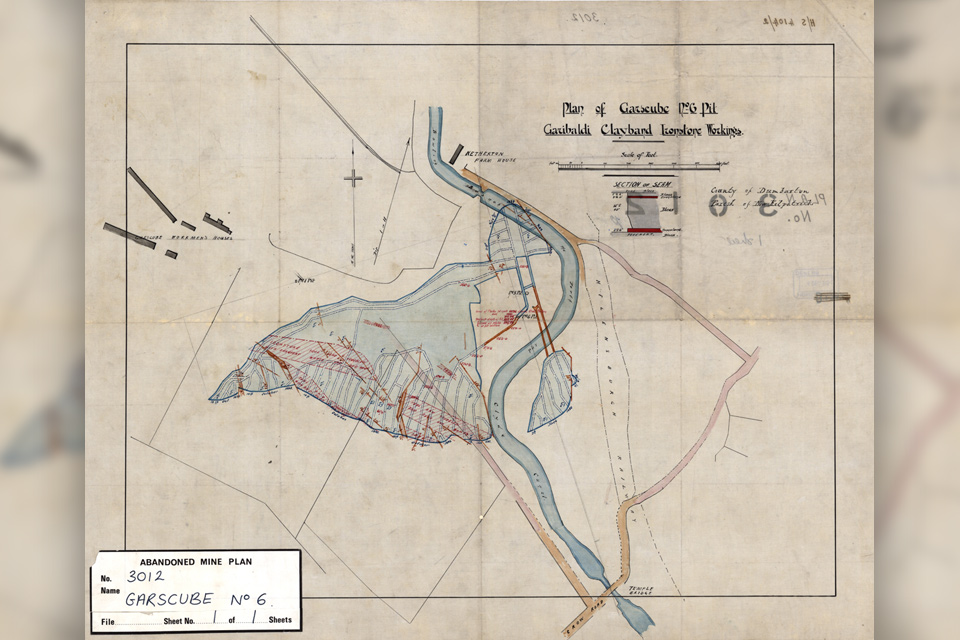
Release of over 500 Scottish abandoned-mine plans
24/06/2025
The historical plans cover non-coal mines that were abandoned pre-1980 and are available through BGS’s plans viewer.
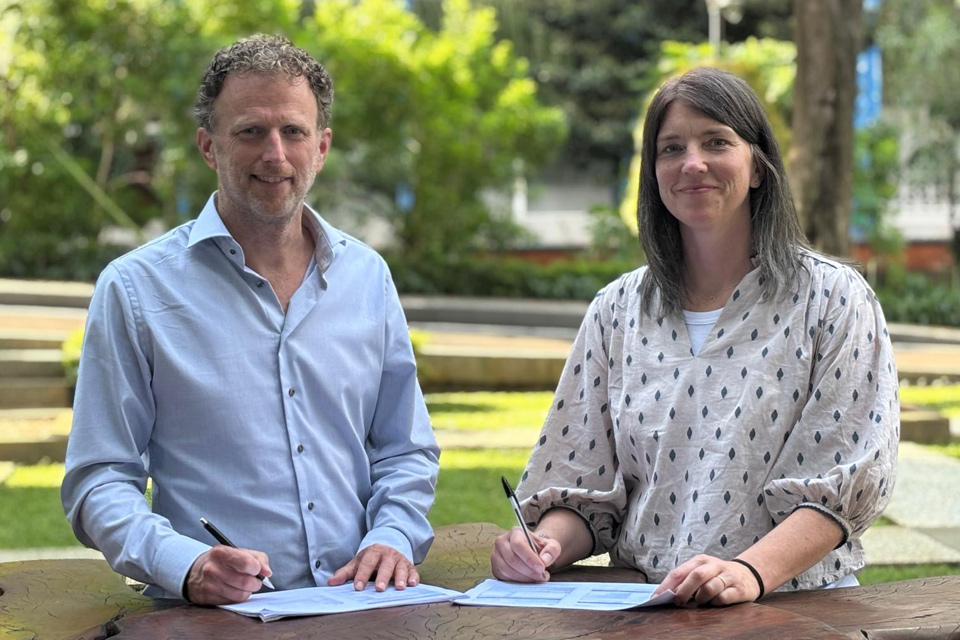
New collaboration aims to improve availability of real-time hazard impact data
19/06/2025
BGS has signed a memorandum of understanding with FloodTags to collaborate on the use of large language models to improve real-time monitoring of geological hazards and their impacts.
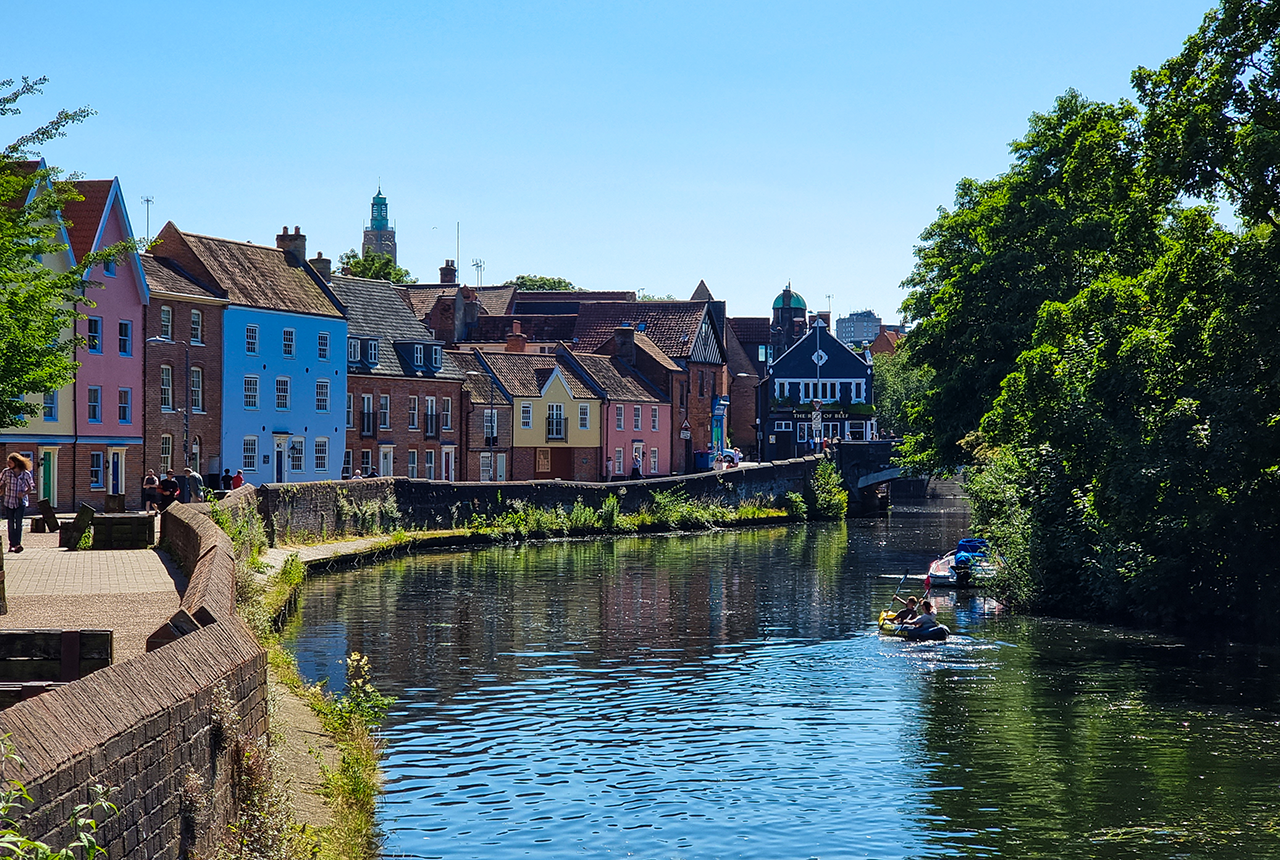
Modern pesticides found in UK rivers could pose risk to aquatic life
17/06/2025
New research shows that modern pesticides used in agriculture and veterinary medicines have been found for the first time in English rivers.

Goldilocks zones: ‘geological super regions’ set to drive annual £40 billion investment in jobs and economic growth
10/06/2025
Eight UK regions identified as ‘just right’ in terms of geological conditions to drive the country’s net zero energy ambitions.
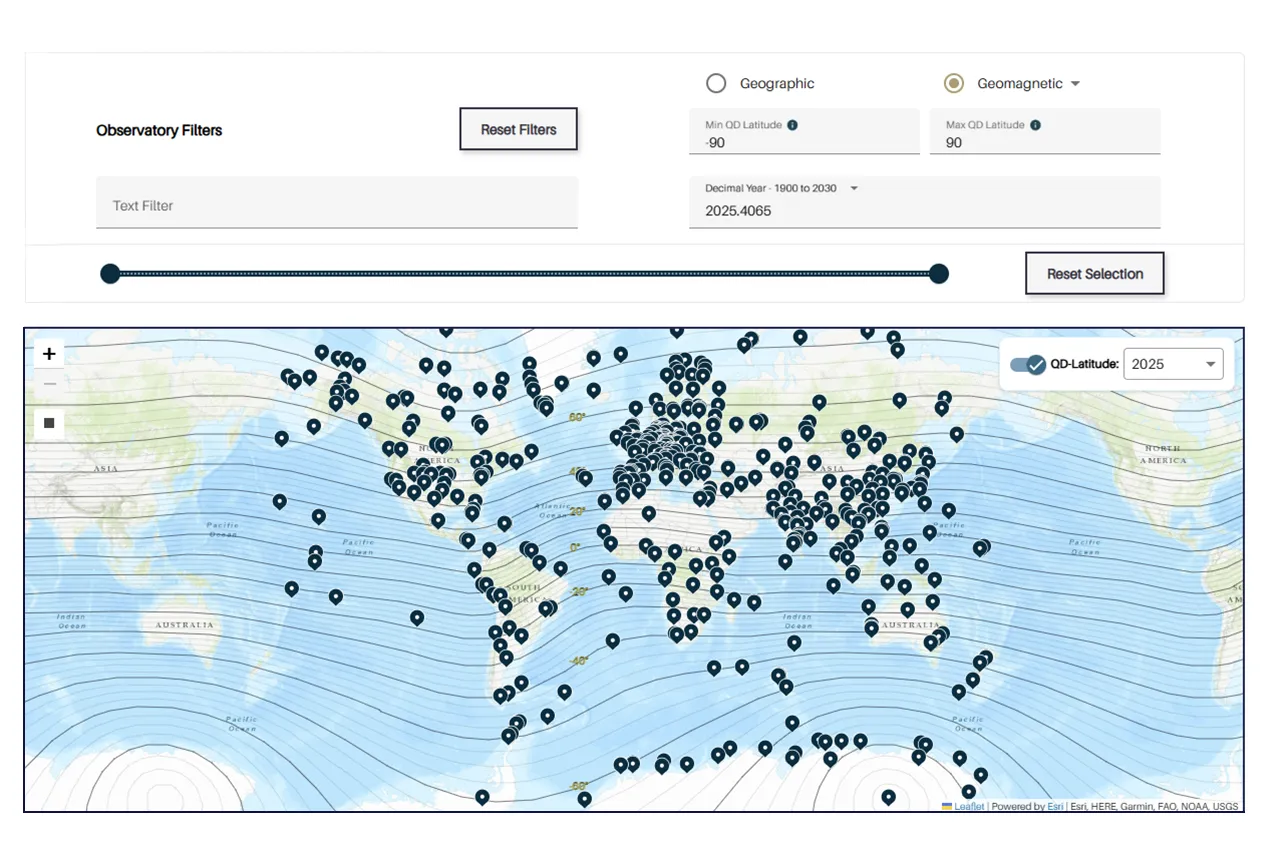
Upgraded web portal improves access to geomagnetism data
02/06/2025
BGS’s geomagnetism portal, which holds data for over 570 observatories across the world, has received a significant update.

BGS digital geology maps: we want your feedback
29/05/2025
BGS is asking for user feedback on its digital geological map datasets to improve data content and delivery.

What is the impact of drought on temperate soils?
22/05/2025
A new BGS review pulls together key information on the impact of drought on temperate soils and the further research needed to fully understand it.
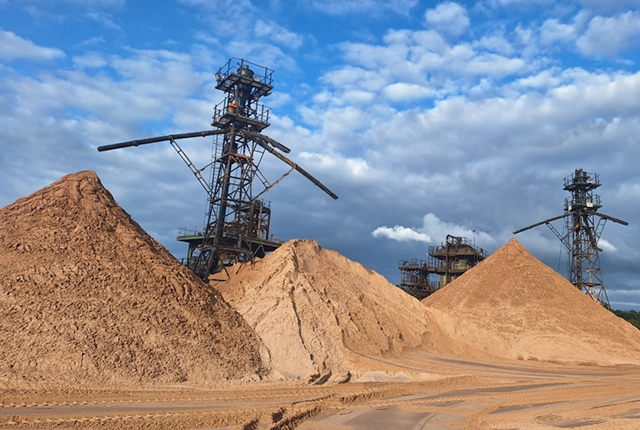
UK Minerals Yearbook 2024 released
21/05/2025
The annual publication provides essential information about the production, consumption and trade of UK minerals up to 2024.

BGS scientists join international expedition off the coast of New England
20/05/2025
Latest IODP research project investigates freshened water under the ocean floor.

New interactive map viewer reveals growing capacity and rare earth element content of UK wind farms
16/05/2025
BGS’s new tool highlights the development of wind energy installations over time, along with their magnet and rare earth content.
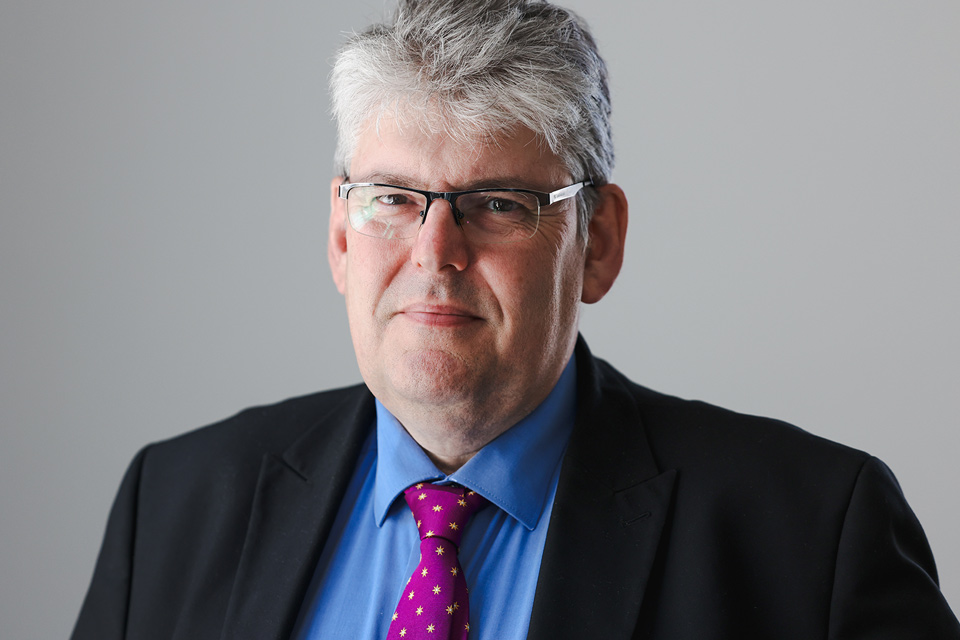
UKRI announce new Chair of the BGS Board
01/05/2025
Prof Paul Monks CB will step into the role later this year.



